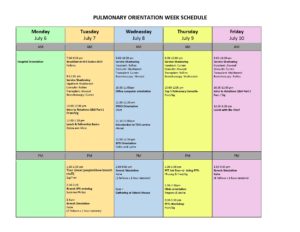Archives: Courses
Dizziness, Syncope and Autonomic Dysfunction: How to Assess and What To Do
(Note: a course evaluation is required to receive credit for this course.)
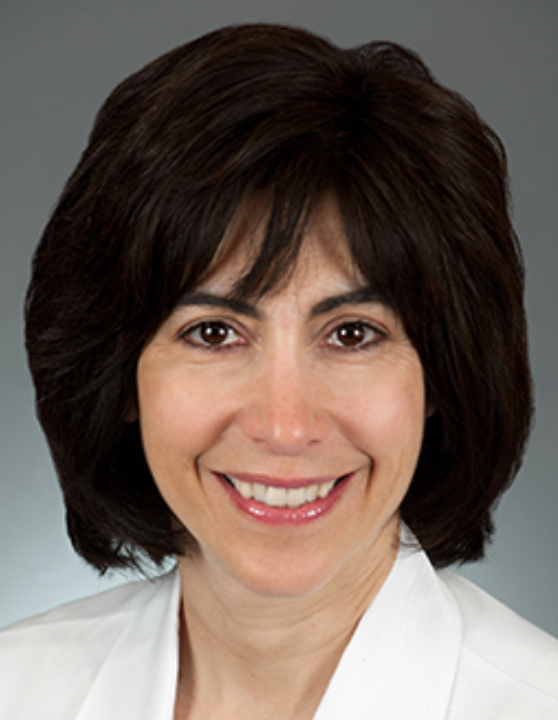
Laura Bevilacqua, MD
Attending Physician, Department of Cardiology
Boston Children’s Hospital
Assistant Professor of Pediatrics, Harvard Medical School
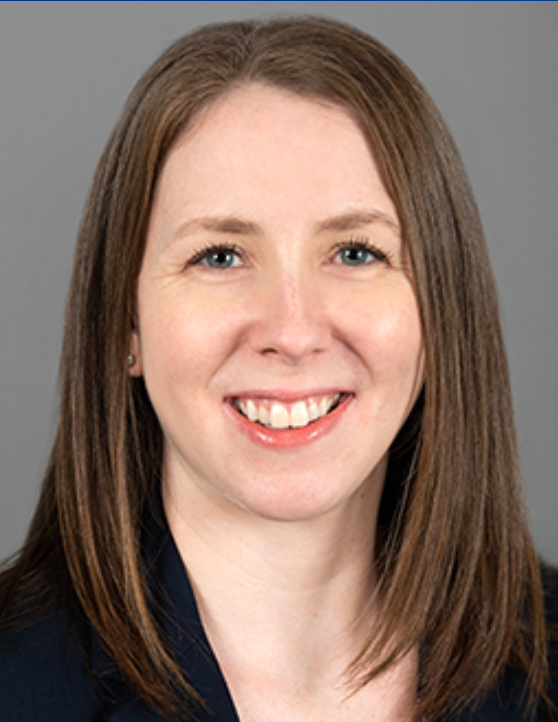
Jamie Harris, MSN, APRN, CPNP
Nurse Practitioner, Department of Cardiology
Boston Children’s Hospital
In this presentation, Dr. Laura Bevilacqua and Jamie Harris, MSN, APRN, CPNP, discuss the diagnostic criteria for postural orthostatic tachycardia syndrome (POTS). The speakers identify the heterogeneous symptoms and disorders associated with orthostatic, vasovagal syncope, and POTS. They also explain situational triggers and treatment strategies for orthostatic symptoms. The presentation was recorded at the Pediatric Cardiology Symposium 2024 on March 1, 2024.
Learning Objectives:
At the conclusion of this educational program, learners will be able to:
- Review diagnostic criteria for postural orthostatic tachycardia syndrome (POTS)
- Recognize the heterogeneous symptoms and disorders associated with orthostatic intolerance, vasovagal syncope, and POTS
- Review situational triggers and treatment strategies for orthostatic symptoms
Accreditation
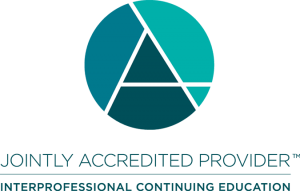
In support of improving patient care, Boston Children’s Hospital is jointly accredited by the Accreditation Council for Continuing Medical Education (ACCME), the Accreditation Council for Pharmacy Education (ACPE), and the American Nurses Credentialing Center (ANCC), to provide continuing education for the healthcare team.
Physicians
Boston Children’s Hospital designates this live activity for a maximum of 0.5 AMA PRA Category 1 Credits ™. Physicians should claim only credit commensurate with the extent of their participation in this activity.
Disclosures
Boston Children’s Hospital adheres to all ACCME Essential Areas, Standards, and Policies. It is Boston Children’s policy that those who have influenced the content of a CME activity (e.g. planners, faculty, authors, reviewers and others) disclose all relevant financial relationships with commercial entities so that Boston Children’s may identify and resolve any conflicts of interest prior to the activity. These disclosures will be provided in the activity materials along with disclosure of any commercial support received for the activity. Additionally, faculty members have been instructed to disclose any limitations of data and unlabeled or investigational uses of products during their presentations.
The following planners, speakers, and content reviewers, on behalf of themselves, have reported the following relevant financial relationships with any entity producing, marketing, reselling, or distributing health care goods or services consumed by, or used on patients:
Laura Bevilacqua, MD
None
Jamie Harris, MSN, APRN, CPNP
None
Susan Saleeb, MD
None
Please see the FAQs below for common questions about how to work through a course. If you have a question or issue that is not addressed in the FAQ, please use this form to submit a help request, or if your issue is urgent, call the CME office at: 617-919-9908.
How do I navigate this course? There are two ways to access and navigate course content with the interactive table of contents: at the bottom of the main course page or in the sidebar on the right side of the page. Select the links in the table of contents to access the corresponding content. Depending on the course, access to content may be linear, in which case each content module or section can only be accessed if the prior ones are completed, or non-linear, in which case modules and sections can be accessed in any order. Use the breadcrumbs at the top of any course page to orient yourself within a course, or return to a previous course section or the main course page. How do I claim credit? If the course has been accredited, available credits will be displayed on the course home page. Select only those credits that apply to your profession, and click/tap “Apply Selection.” You may make your selection at any point while you are taking the course, or after you have completed it. How do I download a certificate? There are two ways to view/download your certificate: from within the course or from the course listing under your profile (select the document icon). In either case, you must have selected at least one available course credit type to generate a certificate. How do I view/print my transcript? You must be logged in to view your transcript. Select My Profile at the top of the page. If you do not see the transcript selector, be sure the Courses tab is selected. Select the type of credit and dates to include in your credit report. To include all credits from all time, leave the options blank. Select Download Transcript to view/download your transcript. Note each credit type in your transcripts starts a new page. How do I request a refund? Please email the CME Department to request a refund.How do navigate this course?
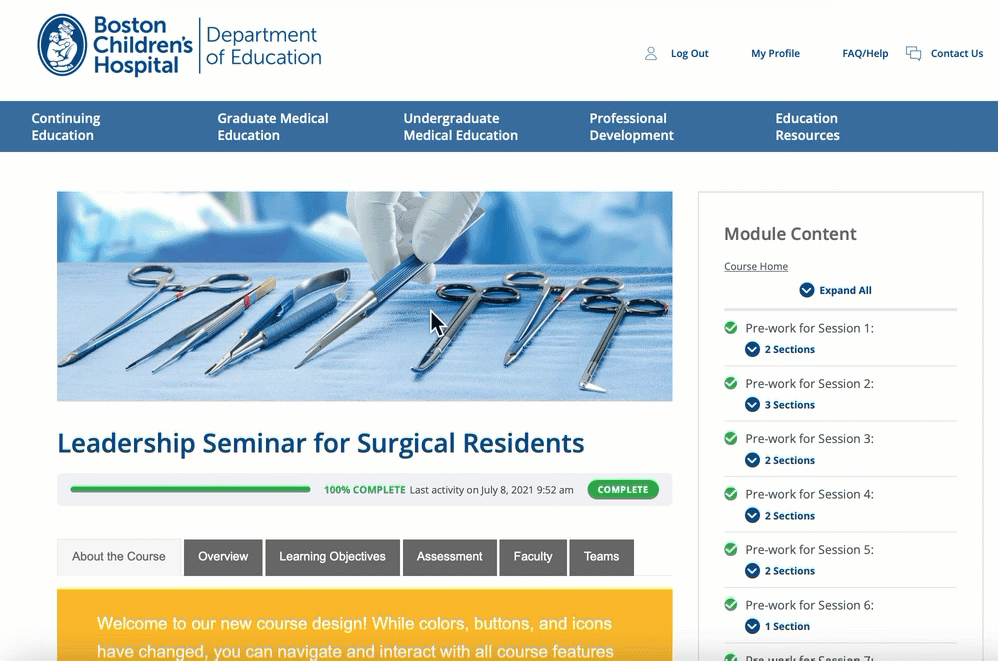
How do I claim credit for this course?
How do I download a certificate?
How do I view/print my transcript?
How do I request a refund?
Avoidant/Restrictive Food Intake Disorder in Children and Adolescents with Autism Spectrum Disorder
(Note: a course evaluation is required to receive credit for this course.)
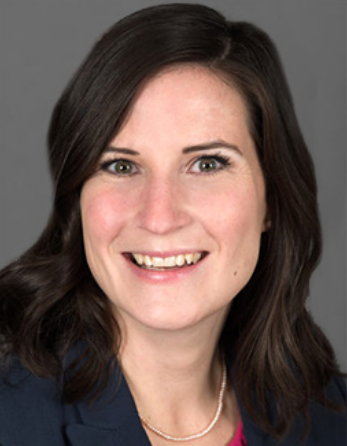
Julia Carmody, PhD
Attending Psychologist, Avoidant/Restrictive Food Intake Disorder (ARFID) Program, Gastroenterology and Nutrition Department, Boston Children’s Hospital
Instructor in Psychology, Harvard Medical School
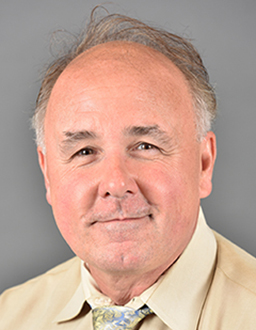
Timothy Buie, MD
Course Director
Pediatric Gastroenterologist and Autism Medical Specialist, Boston Children’s Hospital
Assistant Professor of Pediatrics, Harvard Medical School
In this presentation, Dr. Carmody describes the background, diagnosis, and treatment of Avoidant/Restrictive Food Intake Disorder (ARFID), and the specific challenges in addressing ARFID in children and adolescents with Autism Spectrum Disorder. Dr. Carmody covers several different treatment and management options specific to children and adolescents with Autism Spectrum Disorder. This course* is one of a five-part video lecture series: “Managing Medical Issues in Autism.” The series was made possible thanks to the generous support of the American Institute for Neuro-Integrative Development (AIND). Click here for a video introduction to the entire series.
*Each course of the series may be viewed independently for credit.
Learning Objectives:
At the conclusion of this educational program, learners will be able to:
- Explain Avoidant Restrictive Food Intake Disorder and restate treatment approaches to management.
- Discuss the DSM 5 Criteria, to make the diagnosis of ARFID compared to selective eating or other eating disorders.
- Understand the most common maintaining mechanism for Avoidant Eating Behaviors is sensory sensitivity.

In support of improving patient care, Boston Children’s Hospital is jointly accredited by the Accreditation Council for Continuing Medical Education (ACCME), the Accreditation Council for Pharmacy Education (ACPE), and the American Nurses Credentialing Center (ANCC), to provide continuing education for the healthcare team.
Physician
Boston Children’s Hospital designates this live activity for a maximum of 0.75 AMA PRA Category 1 Credits ™. Physicians should claim only credit commensurate with the extent of their participation in this activity.
Physician Assistant
Boston Children’s Hospital has been authorized by the American Academy of PAs (AAPA) to award AAPA Category 1 CME credits for activities planned in accordance with AAPA CME Criteria. This activity is designated for 0.75 AAPA Category 1 CME credits. Approval is Valid unit 04/15/27. PAs should only claim credit commensurate with the extent of their participation.
Nurse
Boston Children’s Hospital designates this activity for 0.75 contact hours for nurses. Nurses should only claim credit commensurate with the extent of their participation in the activity.
Dietician
** Refer to your Professional Development Portfolio Guide for LNCs or Pls. Completion of this RD/DTR profession-specific or IPCE activity awards CPEUs(One IPCE credit = One CPEU).
If the activity is dietetics-related but not targeted to RDs or DTRs, CPEUs may be claimed which are commensurate with participation in contact hours (One 60 minute hour = 1 CPEU).
RDs and DTRs are to select activity type 102 in their Activity Log. Sphere and Competency selection is at the learner’s discretion.
Social Worker
As a Jointly Accredited Organization, Boston Children’s Hospital is approved to offer social work continuing education by the Association of Social Work Boards (ASWB) Approved Continuing Education (ACE) program. Organizations, not individual courses, are approved under this program. State and provincial regulatory boards have the final authority to determine whether an individual course may be accepted for continuing education credit. Boston Children’s Hospital maintains responsibility for this course. Social workers completing this course receive 0.75 ACE CE continuing education credits.
Psychologist
Continuing Education (CE) credits for psychologists are provided through the co-sponsorship of the American Psychological Association (APA) Office of Continuing Education in Psychology (CEP). The APA CEP Office maintains responsibly for the content of the programs. This course has been approved for 0.75 continuing education credits.
Physical Therapist
Boston Children’s Hospital is an approved provider designated by the APTA of MA. Boston Children’s approves Managing Medical Issues in Autism: Avoidant/Restrictive Food Intake Disorder in Children and Adolescents with Autism Spectrum Disorder for 0.75 Continuing Education Hours
Disclosures
Boston Children’s Hospital adheres to all ACCME Essential Areas, Standards, and Policies. It is Boston Children’s policy that those who have influenced the content of a CME activity (e.g. planners, faculty, authors, reviewers and others) disclose all relevant financial relationships with commercial entities so that Boston Children’s may identify and resolve any conflicts of interest prior to the activity. These disclosures will be provided in the activity materials along with disclosure of any commercial support received for the activity. Additionally, faculty members have been instructed to disclose any limitations of data and unlabeled or investigational uses of products during their presentations.
The following planners, speakers, and content reviewers, on behalf of themselves, have reported the following relevant financial relationships with any entity producing, marketing, reselling, or distributing health care goods or services consumed by, or used on patients:
Speaker Name, Degree
Julia Carmody, PhD
Entity Name, or None
None
Timothy Buie, MD
None
Please see the FAQs below for common questions about how to work through a course. If you have a question or issue that is not addressed in the FAQ, please use this form to submit a help request, or if your issue is urgent, call the CME office at: 617-919-9908.
How do I navigate this course? There are two ways to access and navigate course content with the interactive table of contents: at the bottom of the main course page or in the sidebar on the right side of the page. Select the links in the table of contents to access the corresponding content. Depending on the course, access to content may be linear, in which case each content module or section can only be accessed if the prior ones are completed, or non-linear, in which case modules and sections can be accessed in any order. Use the breadcrumbs at the top of any course page to orient yourself within a course, or return to a previous course section or the main course page. How do I claim credit? If the course has been accredited, available credits will be displayed on the course home page. Select only those credits that apply to your profession, and click/tap “Apply Selection.” You may make your selection at any point while you are taking the course, or after you have completed it. How do I download a certificate? There are two ways to view/download your certificate: from within the course or from the course listing under your profile (select the document icon). In either case, you must have selected at least one available course credit type to generate a certificate. How do I view/print my transcript? You must be logged in to view your transcript. Select My Profile at the top of the page. If you do not see the transcript selector, be sure the Courses tab is selected. Select the type of credit and dates to include in your credit report. To include all credits from all time, leave the options blank. Select Download Transcript to view/download your transcript. Note each credit type in your transcripts starts a new page. How do I request a refund? Please email the CME Department to request a refund.How do navigate this course?

How do I claim credit for this course?
How do I download a certificate?
How do I view/print my transcript?
How do I request a refund?
Behaviors in Autism and GI Issues
(Note: a course evaluation is required to receive credit for this course.)

Timothy Buie, MD
Pediatric Gastroenterologist, Division of Gastroenterology Hepatology and Nutrition and Autism Medical Specialist, Boston Children’s Hospital
Assistant Professor of Pediatrics, Harvard Medical School
In this presentation, Dr. Buie discusses behavior in children with autism as it relates to identifying gastrointestinal issues. Dr. Buie considers the prevalence of gastrointestinal issues in the population of children and adolescents with autism, and how certain behaviors among those with verbal communication difficulties can indicate underlying medical problems. This course* is one of a five-part video lecture series: “Managing Medical Issues in Autism.” The series was made possible thanks to the generous support of the American Institute for Neuro-Integrative Development (AIND). Click here for an introduction to the entire series.
* Each course of the series may be viewed independently for credit.
Learning Objectives:
At the conclusion of this educational program, learners will be able to:
- Recognize common GI conditions, findings and treatments in patients with autism.
- Identify behavioral presentations that may represent pain and underlying medical factors in individuals with autism.
- Discuss methods to investigate problem behaviors to help work through a differential diagnosis.

In support of improving patient care, Boston Children’s Hospital is jointly accredited by the Accreditation Council for Continuing Medical Education (ACCME), the Accreditation Council for Pharmacy Education (ACPE), and the American Nurses Credentialing Center (ANCC), to provide continuing education for the healthcare team.
Social Worker
As a Jointly Accredited Organization, Boston Children’s Hospital is approved to offer social work continuing education by the Association of Social Work Boards (ASWB) Approved Continuing Education (ACE) program. Organizations, not individual courses, are approved under this program. State and provincial regulatory boards have the final authority to determine whether an individual course may be accepted for continuing education credit. Boston Children’s Hospital maintains responsibility for this course. Social workers completing this course receive 0.75 ACE CE continuing education credits.
Psychologist
Continuing Education (CE) credits for psychologists are provided through the co-sponsorship of the American Psychological Association (APA) Office of Continuing Education in Psychology (CEP). The APA CEP Office maintains responsibly for the content of the programs. This course has been approved for 0.75 continuing education credits.
Physician
Boston Children’s Hospital designates this live activity for a maximum of 0.75 AMA PRA Category 1 Credits ™. Physicians should claim only credit commensurate with the extent of their participation in this activity.
Physician Assistant
Boston Children’s Hospital has been authorized by the American Academy of PAs (AAPA) to award AAPA Category 1 CME credits for activities planned in accordance with AAPA CME Criteria. This activity is designated for .75 AAPA Category 1 CME credits. Approval is Valid unit 4/22/27. PAs should only claim credit commensurate with the extent of their participation.
Nurse
Boston Children’s Hospital designates this activity for 0.75 contact hours for nurses. Nurses should only claim credit commensurate with the extent of their participation in the activity.
Dietician
** Refer to your Professional Development Portfolio Guide for LNCs or Pls. Completion of this RD/DTR profession-specific or IPCE activity awards CPEUs(One IPCE credit = One CPEU).
If the activity is dietetics-related but not targeted to RDs or DTRs, CPEUs may be claimed which are commensurate with participation in contact hours (One 60 minute hour = 1 CPEU).
RDs and DTRs are to select activity type 102 in their Activity Log. Sphere and Competency selection is at the learner’s discretion.
Physical Therapist
Boston Children’s Hospital is an approved provider designated by the APTA of MA. Boston Children’s approves Managing Medical Issues in Autism: Behaviors in Autism and GI Problems for 0.75 Continuing Education Hours
Disclosures
Boston Children’s Hospital adheres to all ACCME Essential Areas, Standards, and Policies. It is Boston Children’s policy that those who have influenced the content of a CME activity (e.g. planners, faculty, authors, reviewers and others) disclose all relevant financial relationships with commercial entities so that Boston Children’s may identify and resolve any conflicts of interest prior to the activity. These disclosures will be provided in the activity materials along with disclosure of any commercial support received for the activity. Additionally, faculty members have been instructed to disclose any limitations of data and unlabeled or investigational uses of products during their presentations.
The following planners, speakers, and content reviewers, on behalf of themselves, have reported the following relevant financial relationships with any entity producing, marketing, reselling, or distributing health care goods or services consumed by, or used on patients:
Speaker Name, Degree
Timothy Buie, MD
Entity name, or None
None
Please see the FAQs below for common questions about how to work through a course. If you have a question or issue that is not addressed in the FAQ, please use this form to submit a help request, or if your issue is urgent, call the CME office at: 617-919-9908.
How do I navigate this course? There are two ways to access and navigate course content with the interactive table of contents: at the bottom of the main course page or in the sidebar on the right side of the page. Select the links in the table of contents to access the corresponding content. Depending on the course, access to content may be linear, in which case each content module or section can only be accessed if the prior ones are completed, or non-linear, in which case modules and sections can be accessed in any order. Use the breadcrumbs at the top of any course page to orient yourself within a course, or return to a previous course section or the main course page. How do I claim credit? If the course has been accredited, available credits will be displayed on the course home page. Select only those credits that apply to your profession, and click/tap “Apply Selection.” You may make your selection at any point while you are taking the course, or after you have completed it. How do I download a certificate? There are two ways to view/download your certificate: from within the course or from the course listing under your profile (select the document icon). In either case, you must have selected at least one available course credit type to generate a certificate. How do I view/print my transcript? You must be logged in to view your transcript. Select My Profile at the top of the page. If you do not see the transcript selector, be sure the Courses tab is selected. Select the type of credit and dates to include in your credit report. To include all credits from all time, leave the options blank. Select Download Transcript to view/download your transcript. Note each credit type in your transcripts starts a new page. How do I request a refund? Please email the CME Department to request a refund.How do navigate this course?

How do I claim credit for this course?
How do I download a certificate?
How do I view/print my transcript?
How do I request a refund?
Looking for Answers: The Microbiome in Autism
(Note: a course evaluation is required to receive credit for this course.)

Stacy A. Kahn, MD
Director, Fecal Microbiota Transplantation (FMT) and Therapeutics Program
Pediatric Gastroenterologist, Division of Gastroenterology Hepatology and Nutrition and Attending Physician with the Inflammatory Bowel Disease Center, Boston Children’s Hospital
Assistant Professor of Pediatrics, Harvard Medical School

Timothy Buie, MD
Course Director
Pediatric Gastroenterologist and Autism Medical Specialist, Boston Children’s Hospital
Assistant Professor of Pediatrics, Harvard Medical School
In this evidence-based presentation, Dr. Stacy Kahn discusses the role of the microbiome in human health and disease. Dr. Kahn explores the role of diet and other factors in the development of the microbiome, and problems caused by a compromised microbiome. Dr. Kahn also reviews the fundamentals of Fecal Microbiota Transplant (FMT) and recent studies that address the impact of FMT on autism. This course* is one of a five-part video lecture series: “Managing Medical Issues in Autism.” The series was made possible thanks to the generous support of the American Institute for Neuro-Integrative Development (AIND). Click here for a video introduction to the entire series.
* Each course of the series may be viewed independently for credit.
Learning Objectives:
At the conclusion of this educational program, learners will be able to:
- Discuss the multiple factors known to alter gut microbial communities.
- Detail healthiest suggestions about diet interventions to assist the microbiome.
- Explain the process of Fecal Microbiota Transplant (FMT) and the highly controlled methods for donor acceptance.

In support of improving patient care, Boston Children’s Hospital is jointly accredited by the Accreditation Council for Continuing Medical Education (ACCME), the Accreditation Council for Pharmacy Education (ACPE), and the American Nurses Credentialing Center (ANCC), to provide continuing education for the healthcare team.
Physician
Boston Children’s Hospital designates this live activity for a maximum of .75 AMA PRA Category 1 Credits ™. Physicians should claim only credit commensurate with the extent of their participation in this activity.
Physician Assistant
Boston Children’s Hospital has been authorized by the American Academy of PAs (AAPA) to award AAPA Category 1 CME credits for activities planned in accordance with AAPA CME Criteria. This activity is designated for 0.75 AAPA Category 1 CME credits. Approval is Valid unit 4/22/27. PAs should only claim credit commensurate with the extent of their participation.
Nurse
Boston Children’s Hospital designates this activity for 0.75 contact hours for nurses. Nurses should only claim credit commensurate with the extent of their participation in the activity.
Social Worker
As a Jointly Accredited Organization, Boston Children’s Hospital is approved to offer social work continuing education by the Association of Social Work Boards (ASWB) Approved Continuing Education (ACE) program. Organizations, not individual courses, are approved under this program. State and provincial regulatory boards have the final authority to determine whether an individual course may be accepted for continuing education credit. Boston Children’s Hospital maintains responsibility for this course. Social workers completing this course receive 0.75 ACE CE continuing education credits.
Psychologist
Continuing Education (CE) credits for psychologists are provided through the co-sponsorship of the American Psychological Association (APA) Office of Continuing Education in Psychology (CEP). The APA CEP Office maintains responsibly for the content of the programs. This course has been approved for 0.75 continuing education credits.
Dietitian
** Refer to your Professional Development Portfolio Guide for LNCs or Pls. Completion of this RD/DTR profession-specific or IPCE activity awards CPEUs(One IPCE credit = One CPEU).
If the activity is dietetics-related but not targeted to RDs or DTRs, CPEUs may be claimed which are commensurate with participation in contact hours (One 60 minute hour = 1 CPEU).
RDs and DTRs are to select activity type 102 in their Activity Log. Sphere and Competency selection is at the learner’s discretion.
Physical Therapist
Boston Children’s Hospital is an approved provider designated by the APTA of MA. Boston Children’s approves Managing Medical Issues in Autism: Treating Children with Autism and GI Problems for 0.75 Continuing Education Hours.
Disclosures
Boston Children’s Hospital adheres to all ACCME Essential Areas, Standards, and Policies. It is Boston Children’s policy that those who have influenced the content of a CME activity (e.g. planners, faculty, authors, reviewers and others) disclose all relevant financial relationships with commercial entities so that Boston Children’s may identify and resolve any conflicts of interest prior to the activity. These disclosures will be provided in the activity materials along with disclosure of any commercial support received for the activity. Additionally, faculty members have been instructed to disclose any limitations of data and unlabeled or investigational uses of products during their presentations.
The following planners, speakers, and content reviewers, on behalf of themselves, have reported the following relevant financial relationships with any entity producing, marketing, reselling, or distributing health care goods or services consumed by, or used on patients:
Speaker Name, Degree
Stacy Kahn, MD
Tim Buie, MD
Entity name, or None
None
None
Please see the FAQs below for common questions about how to work through a course. If you have a question or issue that is not addressed in the FAQ, please use this form to submit a help request, or if your issue is urgent, call the CME office at: 617-919-9908.
How do I navigate this course? There are two ways to access and navigate course content with the interactive table of contents: at the bottom of the main course page or in the sidebar on the right side of the page. Select the links in the table of contents to access the corresponding content. Depending on the course, access to content may be linear, in which case each content module or section can only be accessed if the prior ones are completed, or non-linear, in which case modules and sections can be accessed in any order. Use the breadcrumbs at the top of any course page to orient yourself within a course, or return to a previous course section or the main course page. How do I claim credit? If the course has been accredited, available credits will be displayed on the course home page. Select only those credits that apply to your profession, and click/tap “Apply Selection.” You may make your selection at any point while you are taking the course, or after you have completed it. How do I download a certificate? There are two ways to view/download your certificate: from within the course or from the course listing under your profile (select the document icon). In either case, you must have selected at least one available course credit type to generate a certificate. How do I view/print my transcript? You must be logged in to view your transcript. Select My Profile at the top of the page. If you do not see the transcript selector, be sure the Courses tab is selected. Select the type of credit and dates to include in your credit report. To include all credits from all time, leave the options blank. Select Download Transcript to view/download your transcript. Note each credit type in your transcripts starts a new page. How do I request a refund? Please email the CME Department to request a refund.How do navigate this course?

How do I claim credit for this course?
How do I download a certificate?
How do I view/print my transcript?
How do I request a refund?
Treating Children With Autism and GI Problems
(Note: a course evaluation is required to receive credit for this course.)
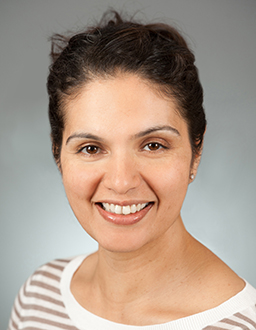
Sonia Arora Ballal, MD
Associate Director, Fecal Microbiota Transplantation (FMT) and Therapeutics Program
Pediatric Gastroenterologist, Division of Gastroenterology Hepatology and Nutrition and Divisional Wellness Officer, Boston Children’s Hospital
Instructor of Pediatrics, Harvard Medical School

Timothy Buie, MD
Course Director
Pediatric Gastroenterologist and Autism Medical Specialist, Boston Children’s Hospital
Assistant Professor of Pediatrics, Harvard Medical School
In this presentation, Dr. Ballal discusses the treatment of children with autism, who frequently experience GI symptoms and diagnoses, including constipation, diarrhea, reflux, and food allergies. Dr. Ballal reviews her own research findings that children with autism have higher rates of esophagitis compared to children with developmental delay and typical development. Dr. Ballal also discusses the use of communication tools, such as visual task lists, to improve the outpatient experience for these children and their families. This course* is one of a five-part video lecture series: “Managing Medical Issues in Autism.” The series was made possible thanks to the generous support of the American Institute for Neuro-Integrative Development (AIND). Click here for a video introduction to the entire series.
* Each course of the series may be viewed independently for credit.
Learning Objectives:
At the conclusion of this educational program, learners will be able to:
- Identify common GI conditions, findings and treatments in patients with autism.
- Apply tools to enhance communication of pain in individuals with autism.
- Modify communication in a clinical setting to better project and organize the patient experience.

In support of improving patient care, Boston Children’s Hospital is jointly accredited by the Accreditation Council for Continuing Medical Education (ACCME), the Accreditation Council for Pharmacy Education (ACPE), and the American Nurses Credentialing Center (ANCC), to provide continuing education for the healthcare team.
Physician
Boston Children’s Hospital designates this live activity for a maximum of 0.75 AMA PRA Category 1 Credits ™. Physicians should claim only credit commensurate with the extent of their participation in this activity.
Physician Assistant
Boston Children’s Hospital has been authorized by the American Academy of PAs (AAPA) to award AAPA Category 1 CME credits for activities planned in accordance with AAPA CME Criteria. This activity is designated for 0.75 AAPA Category 1 CME credits. Approval is Valid unit 4/22/27. PAs should only claim credit commensurate with the extent of their participation.
Nurse
Boston Children’s Hospital designates this activity for 0.75 contact hours for nurses. Nurses should only claim credit commensurate with the extent of their participation in the activity.
Dietician
** Refer to your Professional Development Portfolio Guide for LNCs or Pls. Completion of this RD/DTR profession-specific or IPCE activity awards CPEUs(One IPCE credit = One CPEU).
If the activity is dietetics-related but not targeted to RDs or DTRs, CPEUs may be claimed which are commensurate with participation in contact hours (One 60 minute hour = 1 CPEU).
RDs and DTRs are to select activity type 102 in their Activity Log. Sphere and Competency selection is at the learner’s discretion.
Social Worker
As a Jointly Accredited Organization, Boston Children’s Hospital is approved to offer social work continuing education by the Association of Social Work Boards (ASWB) Approved Continuing Education (ACE) program. Organizations, not individual courses, are approved under this program. State and provincial regulatory boards have the final authority to determine whether an individual course may be accepted for continuing education credit. Boston Children’s Hospital maintains responsibility for this course. Social workers completing this course receive 0.75 ACE CE continuing education credits.
Psychologist
Continuing Education (CE) credits for psychologists are provided through the co-sponsorship of the American Psychological Association (APA) Office of Continuing Education in Psychology (CEP). The APA CEP Office maintains responsibly for the content of the programs. This course has been approved for 0.75 continuing education credits.
Physical Therapist
Boston Children’s Hospital is an approved provider designated by the APTA of MA. Boston Children’s approves Managing Medical Issues in Autism: Treating Children with Autism and GI Problems for 0.75 Continuing Education Hours.
Disclosures
Boston Children’s Hospital adheres to all ACCME Essential Areas, Standards, and Policies. It is Boston Children’s policy that those who have influenced the content of a CME activity (e.g. planners, faculty, authors, reviewers and others) disclose all relevant financial relationships with commercial entities so that Boston Children’s may identify and resolve any conflicts of interest prior to the activity. These disclosures will be provided in the activity materials along with disclosure of any commercial support received for the activity. Additionally, faculty members have been instructed to disclose any limitations of data and unlabeled or investigational uses of products during their presentations.
The following planners, speakers, and content reviewers, on behalf of themselves, have reported the following relevant financial relationships with any entity producing, marketing, reselling, or distributing health care goods or services consumed by, or used on patients:
Speaker Name, Degree
Sonia Arora Ballal, MD
Timothy Buie, MD
Entity name, or None
None
None
Please see the FAQs below for common questions about how to work through a course. If you have a question or issue that is not addressed in the FAQ, please use this form to submit a help request, or if your issue is urgent, call the CME office at: 617-919-9908.
How do I navigate this course? There are two ways to access and navigate course content with the interactive table of contents: at the bottom of the main course page or in the sidebar on the right side of the page. Select the links in the table of contents to access the corresponding content. Depending on the course, access to content may be linear, in which case each content module or section can only be accessed if the prior ones are completed, or non-linear, in which case modules and sections can be accessed in any order. Use the breadcrumbs at the top of any course page to orient yourself within a course, or return to a previous course section or the main course page. How do I claim credit? If the course has been accredited, available credits will be displayed on the course home page. Select only those credits that apply to your profession, and click/tap “Apply Selection.” You may make your selection at any point while you are taking the course, or after you have completed it. How do I download a certificate? There are two ways to view/download your certificate: from within the course or from the course listing under your profile (select the document icon). In either case, you must have selected at least one available course credit type to generate a certificate. How do I view/print my transcript? You must be logged in to view your transcript. Select My Profile at the top of the page. If you do not see the transcript selector, be sure the Courses tab is selected. Select the type of credit and dates to include in your credit report. To include all credits from all time, leave the options blank. Select Download Transcript to view/download your transcript. Note each credit type in your transcripts starts a new page. How do I request a refund? Please email the CME Department to request a refund.How do navigate this course?

How do I claim credit for this course?
How do I download a certificate?
How do I view/print my transcript?
How do I request a refund?
Informing Others About Pain and Illness: A Formidable Challenge for Many on the Autism Spectrum
(Note: a course evaluation is required to receive credit for this course.)

Howard C. Shane, PhD
Former Director of the Center for Communication Enhancement and the Autism Language Program, Boston Children’s Hospital
Assistant Professor of Otology and Otolaryngology, Harvard Medical School

Timothy Buie, MD
Course Director
Pediatric Gastroenterologist and Autism Medical Specialist, Boston Children’s Hospital
Assistant Professor of Pediatrics, Harvard Medical School
In this presentation, Dr. Shane discusses the need for patients with Autism Spectrum Disorder to communicate pain and illness, and potential strategies to address this communication need. Dr. Shane also describes pre-planning for effective communication strategies to be used for painful events or illnesses. This course* is one of a five-part video lecture series: “Managing Medical Issues in Autism.” The series was made possible thanks to the generous support of the American Institute for Neuro-Integrative Development (AIND). Click here for an introduction to the entire series.
*Each course of the series may be viewed independently for credit.
Learning Objectives:
At the conclusion of this educational program, learners will be able to:
- Discuss factors accounting for limited communication in individuals with autism even when language is present.
- Develop strategies for communication using computer applications or low-tech symbols and photography to coach pain reporting.
- Describe pre-planning for painful events or illness by effectively using communication tools.

In support of improving patient care, Boston Children’s Hospital is jointly accredited by the Accreditation Council for Continuing Medical Education (ACCME), the Accreditation Council for Pharmacy Education (ACPE), and the American Nurses Credentialing Center (ANCC), to provide continuing education for the healthcare team.
Social Worker
As a Jointly Accredited Organization, Boston Children’s Hospital is approved to offer social work continuing education by the Association of Social Work Boards (ASWB) Approved Continuing Education (ACE) program. Organizations, not individual courses, are approved under this program. State and provincial regulatory boards have the final authority to determine whether an individual course may be accepted for continuing education credit. Boston Children’s Hospital maintains responsibility for this course. Social workers completing this course receive 0.75 ACE CE continuing education credits.
Psychologist
Continuing Education (CE) credits for psychologists are provided through the co-sponsorship of the American Psychological Association (APA) Office of Continuing Education in Psychology (CEP). The APA CEP Office maintains responsibly for the content of the programs. This course has been approved for 0.75 continuing education credits.
Physician
Boston Children’s Hospital designates this live activity for a maximum of 0.75 AMA PRA Category 1 Credits ™. Physicians should claim only credit commensurate with the extent of their participation in this activity.
Physician Assistant
Boston Children’s Hospital has been authorized by the American Academy of PAs (AAPA) to award AAPA Category 1 CME credits for activities planned in accordance with AAPA CME Criteria. This activity is designated for .75 AAPA Category 1 CME credits. Approval is Valid unit 4/22/27. PAs should only claim credit commensurate with the extent of their participation.
Nurse
Boston Children’s Hospital designates this activity for 0.75 contact hours for nurses. Nurses should only claim credit commensurate with the extent of their participation in the activity.
Dietician
** Refer to your Professional Development Portfolio Guide for LNCs or Pls. Completion of this RD/DTR profession-specific or IPCE activity awards CPEUs(One IPCE credit = One CPEU).
If the activity is dietetics-related but not targeted to RDs or DTRs, CPEUs may be claimed which are commensurate with participation in contact hours (One 60 minute hour = 1 CPEU).
RDs and DTRs are to select activity type 102 in their Activity Log. Sphere and Competency selection is at the learner’s discretion.
Physical Therapist
Boston Children’s Hospital is an approved provider designated by the APTA of MA. Boston Children’s approves Managing Medical Issues in Autism: Treating Children with Autism and GI Problems for 0.75 Continuing Education Hours
Disclosures
Boston Children’s Hospital adheres to all ACCME Essential Areas, Standards, and Policies. It is Boston Children’s policy that those who have influenced the content of a CME activity (e.g. planners, faculty, authors, reviewers and others) disclose all relevant financial relationships with commercial entities so that Boston Children’s may identify and resolve any conflicts of interest prior to the activity. These disclosures will be provided in the activity materials along with disclosure of any commercial support received for the activity. Additionally, faculty members have been instructed to disclose any limitations of data and unlabeled or investigational uses of products during their presentations.
The following planners, speakers, and content reviewers, on behalf of themselves, have reported the following relevant financial relationships with any entity producing, marketing, reselling, or distributing health care goods or services consumed by, or used on patients:
Speaker Name, Degree
Howard Shane, PhD
Tim Buie, MD
Entity name, or None
None
None
Please see the FAQs below for common questions about how to work through a course. If you have a question or issue that is not addressed in the FAQ, please use this form to submit a help request, or if your issue is urgent, call the CME office at: 617-919-9908.
How do I navigate this course? There are two ways to access and navigate course content with the interactive table of contents: at the bottom of the main course page or in the sidebar on the right side of the page. Select the links in the table of contents to access the corresponding content. Depending on the course, access to content may be linear, in which case each content module or section can only be accessed if the prior ones are completed, or non-linear, in which case modules and sections can be accessed in any order. Use the breadcrumbs at the top of any course page to orient yourself within a course, or return to a previous course section or the main course page. How do I claim credit? If the course has been accredited, available credits will be displayed on the course home page. Select only those credits that apply to your profession, and click/tap “Apply Selection.” You may make your selection at any point while you are taking the course, or after you have completed it. How do I download a certificate? There are two ways to view/download your certificate: from within the course or from the course listing under your profile (select the document icon). In either case, you must have selected at least one available course credit type to generate a certificate. How do I view/print my transcript? You must be logged in to view your transcript. Select My Profile at the top of the page. If you do not see the transcript selector, be sure the Courses tab is selected. Select the type of credit and dates to include in your credit report. To include all credits from all time, leave the options blank. Select Download Transcript to view/download your transcript. Note each credit type in your transcripts starts a new page. How do I request a refund? Please email the CME Department to request a refund.How do navigate this course?

How do I claim credit for this course?
How do I download a certificate?
How do I view/print my transcript?
How do I request a refund?
Pediatric Asthma Updates 2024
(Note: a course evaluation is required to receive credit for this course.)

Kenan Haver, MD
Director, Asthma Program, Boston Children’s Hospital
Associate Professor of Pediatrics, Harvard Medical School
In this presentation, Dr. Kenan Haver discusses asthma epidemiology and the proper use and access considerations of asthma medications. Furthermore, Dr. Haver pinpoints the factors that may impact asthma control. This presentation was recorded at the Pediatric Asthma and Allergy Updates for Primary Care Providers Conference on March 15, 2024.
Learning Objectives:
At the conclusion of this educational program, learners will be able to:
- Review asthma epidemiology
- Consider access and proper use of asthma medications
- Recognize factors that may impact asthma control

In support of improving patient care, Boston Children’s Hospital is jointly accredited by the Accreditation Council for Continuing Medical Education (ACCME), the Accreditation Council for Pharmacy Education (ACPE), and the American Nurses Credentialing Center (ANCC), to provide continuing education for the healthcare team.
Physician
Boston Children’s Hospital designates this live activity for a maximum of 0.5 AMA PRA Category 1 Credits ™. Physicians should claim only credit commensurate with the extent of their participation in this activity.
MOC II
Successful completion of this CME activity, which includes participation in the activity, with individual assessments of the participant and feedback to the participant, enables the participant to earn:
0.5 MOC points in the American Board of Pediatrics (ABP) Maintenance of Certification (MOC) program
Nurse
Boston Children’s Hospital designates this activity for 0.5 contact hours for nurses. Nurses should only claim credit commensurate with the extent of their participation in the activity.
Disclosures
Boston Children’s Hospital adheres to all ACCME Essential Areas, Standards, and Policies. It is Boston Children’s policy that those who have influenced the content of a CME activity (e.g. planners, faculty, authors, reviewers and others) disclose all relevant financial relationships with commercial entities so that Boston Children’s may identify and resolve any conflicts of interest prior to the activity. These disclosures will be provided in the activity materials along with disclosure of any commercial support received for the activity. Additionally, faculty members have been instructed to disclose any limitations of data and unlabeled or investigational uses of products during their presentations.
The following planners, speakers, and content reviewers, on behalf of themselves, have reported the following relevant financial relationships with any entity producing, marketing, reselling, or distributing health care goods or services consumed by, or used on patients:
Kenan Haver, MD:
Author, UpToDate
Please see the FAQs below for common questions about how to work through a course. If you have a question or issue that is not addressed in the FAQ, please use this form to submit a help request, or if your issue is urgent, call the CME office at: 617-919-9908.
How do I navigate this course? There are two ways to access and navigate course content with the interactive table of contents: at the bottom of the main course page or in the sidebar on the right side of the page. Select the links in the table of contents to access the corresponding content. Depending on the course, access to content may be linear, in which case each content module or section can only be accessed if the prior ones are completed, or non-linear, in which case modules and sections can be accessed in any order. Use the breadcrumbs at the top of any course page to orient yourself within a course, or return to a previous course section or the main course page. How do I claim credit? If the course has been accredited, available credits will be displayed on the course home page. Select only those credits that apply to your profession, and click/tap “Apply Selection.” You may make your selection at any point while you are taking the course, or after you have completed it. How do I download a certificate? There are two ways to view/download your certificate: from within the course or from the course listing under your profile (select the document icon). In either case, you must have selected at least one available course credit type to generate a certificate. How do I view/print my transcript? You must be logged in to view your transcript. Select My Profile at the top of the page. If you do not see the transcript selector, be sure the Courses tab is selected. Select the type of credit and dates to include in your credit report. To include all credits from all time, leave the options blank. Select Download Transcript to view/download your transcript. Note each credit type in your transcripts starts a new page. How do I request a refund? Please email the CME Department to request a refund.How do navigate this course?

How do I claim credit for this course?
How do I download a certificate?
How do I view/print my transcript?
How do I request a refund?
Stress Management for Clinicians and Families in the Era of COVID-19
(Note: a course evaluation is required to receive credit for this course.)
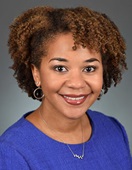
Keneisha Sinclair-McBride, PhD
Attending Psychologist, Department of Psychiatry
Assistant Professor of Psychology in the Department of Psychiatry, Harvard Medical School

Erica Lee, PhD
Attending Psychologist, Department of Psychiatry
Instructor of Psychology in the Department of Psychiatry, Harvard Medical School
This course will cover the impact of pandemic related stress on clinicians, active coping skills, and how to prioritize your own self care to support yourself as a clinician. The presentation was recorded at Advances in Pediatric Healthcare 2020, on Nov. 4-5, 2020.
Learning Objectives:
At the conclusion of this educational program, learners will be able to:
- Differentiate between compassion fatigue, vicarious trauma, and burnout among providers.
- Identify evidence-based coping skills they can use to address clinicians COVID-19 related stressors.

In support of improving patient care, Boston Children’s Hospital is jointly accredited by the Accreditation Council for Continuing Medical Education (ACCME), the Accreditation Council for Pharmacy Education (ACPE), and the American Nurses Credentialing Center (ANCC), to provide continuing education for the healthcare team.
Physician
Boston Children’s Hospital designates this live activity for a maximum of 1.0 AMA PRA Category 1 Credits ™. Physicians should claim only credit commensurate with the extent of their participation in this activity.
Risk Management
This activity meets the requirements for 1.0 Risk Management Credits as proscribed by the Massachusetts Board of Registration in Medicine and defined in 243 CMR 2.06(5)(d) I. Please check your individual state licensing board requirements before claiming these credits.
Nurse
Boston Children’s Hospital designates this activity for 1.0 contact hours for nurses. Nurses should only claim credit commensurate with the extent of their participation in the activity.
Disclosure Policy
Boston Children’s Hospital adheres to all ACCME Essential Areas, Standards, and Policies. It is Boston Children’s policy that those who have influenced the content of a CE activity (e.g. planners, faculty, authors, reviewers and others) disclose all relevant financial relationships with commercial entities so that Boston Children’s may identify and resolve any conflicts of interest prior to the activity. These disclosures will be provided in the activity materials along with disclosure of any commercial support received for the activity. Additionally, faculty members have been instructed to disclose any limitations of data and unlabeled or investigational uses of products during their presentations.
Disclosure Statement
The following planners, speakers, and content reviewers, on behalf of themselves, have reported the following relevant financial relationships with any entity producing, marketing, reselling, or distributing health care goods or services consumed by, or used on patients:
Keneisha Sinclair-McBride, PhD
None
Erica Lee, PhD
None
Please see the FAQs below for common questions about how to work through a course. If you have a question or issue that is not addressed in the FAQ, please use this form to submit a help request, or if your issue urgent, call the CE office at: 617-919-9908.
How do I navigate this course? There are two ways to access and navigate course content with the interactive table of contents: at the bottom of the main course page or in the sidebar on the right side of the page. Select the links in the table of contents to access the corresponding content. Depending on the course, access to content may be linear, in which case each content module or section can only be accessed if the prior ones are completed, or non-linear, in which case modules and sections can be accessed in any order. Use the breadcrumbs at the top of any course page to orient yourself within a course, or return to a previous course section or the main course page. How do I claim credit? If the course has been accredited, available credits will be displayed on the course home page. Select only those credits that apply to your profession, and click/tap “Apply Selection.” You may make your selection at any point while you are taking the course, or after you have completed it. How do I download a certificate? There are two ways to view/download your certificate: from within the course or from the course listing under your profile (select the document icon). In either case, you must have selected at least one available course credit type to generate a certificate. How do I view/print my transcript? You must be logged in to view your transcript. Select My Profile at the top of the page. If you do not see the transcript selector, be sure the Courses tab is selected. Select the type of credit and dates to include in your credit report. To include all credits from all time, leave the options blank. Select Download Transcript to view/download your transcript. Note each credit type in your transcripts starts a new page. How do I request a refund? Please email the CE Department to request a refund.How do I Navigate this Course?

How do I claim credit for this course?
How do I download a certificate?
How do I view/print my transcript?
How do I request a refund?
Pediatric Analgesia: Opioids and Non-Opioids

Alyssa Lebel, MD
Co-Director, Headache Program; Senior Associate in Pain Medicine, Department of Anesthesiology, Critical Care and Pain Medicine
Associate Professor of Anaesthesia, Harvard Medical School
Dr. Lebel reviews the science of opioids and considerations for evaluating the different options for pain management in children, with the ultimate goal of finding balance and harmony in opioid therapy. The presentation was recorded at Effective Pediatric Pain Management and End of Life Care, on March 6, 2021.
Learning Objectives
At the conclusion of this educational program, learners will be able to:
- Evaluate available opioid and non-opioid options to treat pediatric pain
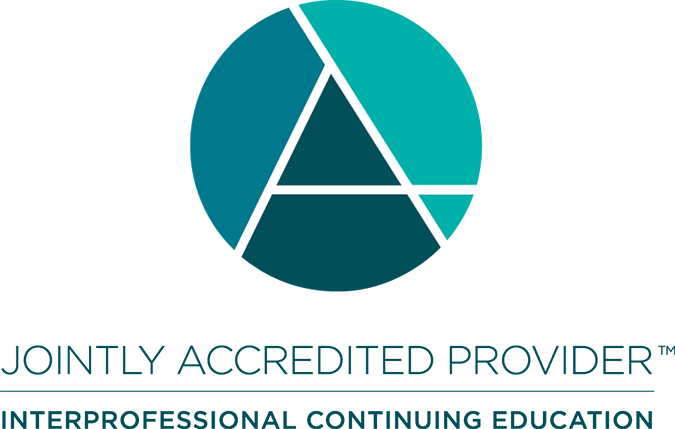
In support of improving patient care, Boston Children’s Hospital is jointly accredited by the Accreditation Council for Continuing Medical Education (ACCME), the Accreditation Council for Pharmacy Education (ACPE), and the American Nurses Credentialing Center (ANCC), to provide continuing education for the healthcare team.
Physician
Boston Children’s Hospital designates this live activity for a maximum of 0.75 AMA PRA Category 1 Credits ™. Physicians should claim only credit commensurate with the extent of their participation in this activity.
Risk Management
This activity meets the requirements for 0.75 Risk Management Credits as proscribed by the Massachusetts Board of Registration in Medicine and defined in 243 CMR 2.06(5)(d) I. Please check your individual state licensing board requirements before claiming these credits.
Physician Assistant
Boston Children’s Hospital has been authorized by the American Academy of PAs (AAPA) to award AAPA Category 1 CME credits for activities planned in accordance with AAPA CME Criteria. This activity is designated for 0.75 AAPA Category 1 CME credits. PAs should only claim credit commensurate with the extent of their participation.
Nurse
Boston Children’s Hospital designates this activity for 0.75 contact hours for nurses. Nurses should only claim credit commensurate with the extent of their participation in the activity.
Disclosure Policy
Boston Children’s Hospital adheres to all ACCME Essential Areas, Standards, and Policies. It is Boston Children’s policy that those who have influenced the content of a CE activity (e.g. planners, faculty, authors, reviewers and others) disclose all relevant financial relationships with commercial entities so that Boston Children’s may identify and resolve any conflicts of interest prior to the activity. These disclosures will be provided in the activity materials along with disclosure of any commercial support received for the activity. Additionally, faculty members have been instructed to disclose any limitations of data and unlabeled or investigational uses of products during their presentations.
Disclosure Statement
The following planners, speakers, and content reviewers, on behalf of themselves, have reported the following relevant financial relationships with any entity producing, marketing, reselling, or distributing health care goods or services consumed by, or used on patients:
Alyssa Lebel, MD
None
Please see the FAQs below for common questions about how to work through a course. If you have a question or issue that is not addressed in the FAQ, please use this form to submit a help request, or if your issue urgent, call the CE office at: 617-919-9908.
How do I navigate this course? There are two ways to access and navigate course content with the interactive table of contents: at the bottom of the main course page or in the sidebar on the right side of the page. Select the links in the table of contents to access the corresponding content. Depending on the course, access to content may be linear, in which case each content module or section can only be accessed if the prior ones are completed, or non-linear, in which case modules and sections can be accessed in any order. Use the breadcrumbs at the top of any course page to orient yourself within a course, or return to a previous course section or the main course page. How do I claim credit? If the course has been accredited, available credits will be displayed on the course home page. Select only those credits that apply to your profession, and click/tap “Apply Selection.” You may make your selection at any point while you are taking the course, or after you have completed it. How do I download a certificate? There are two ways to view/download your certificate: from within the course or from the course listing under your profile (select the document icon). In either case, you must have selected at least one available course credit type to generate a certificate. How do I view/print my transcript? You must be logged in to view your transcript. Select My Profile at the top of the page. If you do not see the transcript selector, be sure the Courses tab is selected. Select the type of credit and dates to include in your credit report. To include all credits from all time, leave the options blank. Select Download Transcript to view/download your transcript. Note each credit type in your transcripts starts a new page. How do I request a refund? Please email the CE Department to request a refund.How do I Navigate this Course?

How do I claim credit for this course?
How do I download a certificate?
How do I view/print my transcript?
How do I request a refund?
Towards a Mechanism-Based Approach to Pain Diagnoses and Treatment
Note: a course evaluation is required to receive credit for this course.

Clifford Woolf, MB, BCh, PhD
Director, F.M. Kirby Neurobiology Center and
Neurobiology Program
Professor of Neurology and Neurobiology, Harvard Medical School
Dr. Clifford Woolf reviews the current state of understanding about pain mechanisms and the implications of that understanding for both diagnosis and treatment. The presentation was recorded at Effective Pediatric Pain Management and End of Life Care, on March 6, 2021.
Learning Objectives:
At the conclusion of this educational program, learners will be able to:
- Discuss the fundamental basic pain mechanisms.

In support of improving patient care, Boston Children’s Hospital is jointly accredited by the Accreditation Council for Continuing Medical Education (ACCME), the Accreditation Council for Pharmacy Education (ACPE), and the American Nurses Credentialing Center (ANCC), to provide continuing education for the healthcare team.
Physician
Boston Children’s Hospital designates this live activity for a maximum of 0.5 AMA PRA Category 1 Credits ™. Physicians should claim only credit commensurate with the extent of their participation in this activity.
Risk Management
This activity meets the requirements for 0.5 Risk Management Credits as proscribed by the Massachusetts Board of Registration in Medicine and defined in 243 CMR 2.06(5)(d) I. Please check your individual state licensing board requirements before claiming these credits.
Physician Assistant
Boston Children’s Hospital has been authorized by the American Academy of PAs (AAPA) to award AAPA Category 1 CME credits for activities planned in accordance with AAPA CME Criteria. This activity is designated for 0.5 AAPA Category 1 CME credits. PAs should only claim credit commensurate with the extent of their participation.
Nurse
Boston Children’s Hospital designates this activity for 0.5 contact hours for nurses. Nurses should only claim credit commensurate with the extent of their participation in the activity.
Disclosure Policy
Boston Children’s Hospital adheres to all ACCME Essential Areas, Standards, and Policies. It is Boston Children’s policy that those who have influenced the content of a CE activity (e.g. planners, faculty, authors, reviewers and others) disclose all relevant financial relationships with commercial entities so that Boston Children’s may identify and resolve any conflicts of interest prior to the activity. These disclosures will be provided in the activity materials along with disclosure of any commercial support received for the activity. Additionally, faculty members have been instructed to disclose any limitations of data and unlabeled or investigational uses of products during their presentations.
Disclosure Statement
The following planners, speakers, and content reviewers, on behalf of themselves, have reported the following relevant financial relationships with any entity producing, marketing, reselling, or distributing health care goods or services consumed by, or used on patients:
Clifford Woolf, MB, BCh, PhD
Founder of Nocion Therapeutics and QurAlis; Scientific Advisory Board Member for Enclear Therapies and Cyngal
Please see the FAQs below for common questions about how to work through a course. If you have a question or issue that is not addressed in the FAQ, please use this form to submit a help request, or if your issue urgent, call the CE office at: 617-919-9908.
How do I navigate this course? There are two ways to access and navigate course content with the interactive table of contents: at the bottom of the main course page or in the sidebar on the right side of the page. Select the links in the table of contents to access the corresponding content. Depending on the course, access to content may be linear, in which case each content module or section can only be accessed if the prior ones are completed, or non-linear, in which case modules and sections can be accessed in any order. Use the breadcrumbs at the top of any course page to orient yourself within a course, or return to a previous course section or the main course page. How do I claim credit? If the course has been accredited, available credits will be displayed on the course home page. Select only those credits that apply to your profession, and click/tap “Apply Selection.” You may make your selection at any point while you are taking the course, or after you have completed it. How do I download a certificate? There are two ways to view/download your certificate: from within the course or from the course listing under your profile (select the document icon). In either case, you must have selected at least one available course credit type to generate a certificate. How do I view/print my transcript? You must be logged in to view your transcript. Select My Profile at the top of the page. If you do not see the transcript selector, be sure the Courses tab is selected. Select the type of credit and dates to include in your credit report. To include all credits from all time, leave the options blank. Select Download Transcript to view/download your transcript. Note each credit type in your transcripts starts a new page. How do I request a refund? Please email the CE Department to request a refund.How do I Navigate this Course?

How do I claim credit for this course?
How do I download a certificate?
How do I view/print my transcript?
How do I request a refund?
Opioids, Marijuana & Vaping (The Law and Rational Prescribing)
(Note: a course evaluation is required to receive credit for this course.)

Shannon Manzi, PharmD
Director, Clinical Pharmacogenomics Service; Manager, ED and ICU Pharmacy Services; Applied Informatics Faculty, Computational Health Informatics Program (CHIP); Assistant Professor of Pediatrics, Harvard Medical School
Dr. Shannon Manzi discusses Massachusetts and federal laws pertaining to opioid deterrence and medical marijuana, reviews detection tools, and looks at the vaping crisis. The presentation was recorded at the Effective Pediatric Pain Management and End of Life Care conference on March 6, 2021.
Learning Objectives:
At the conclusion of this educational program, learners will be able to:
- Discuss the laws surrounding opioid and medical marijuana misuse and deterrent measures in Massachusetts, and where we’re headed with the federal government.
- Describe the current tools that are available for detecting this misuse of prescription drugs.
- Describe the vaping crisis and how that actually fits into the marijuana use and the medical marijuana use.

In support of improving patient care, Boston Children’s Hospital is jointly accredited by the Accreditation Council for Continuing Medical Education (ACCME), the Accreditation Council for Pharmacy Education (ACPE), and the American Nurses Credentialing Center (ANCC), to provide continuing education for the healthcare team.
Physician
Boston Children’s Hospital designates this live activity for a maximum of 0.75 AMA PRA Category 1 Credits ™. Physicians should claim only credit commensurate with the extent of their participation in this activity.
Risk Management
This activity meets the requirements for 0.75 Risk Management Credits as proscribed by the Massachusetts Board of Registration in Medicine and defined in 243 CMR 2.06(5)(d) I. Please check your individual state licensing board requirements before claiming these credits.
Nurse
Boston Children’s Hospital designates this activity for 0.75 contact hours for nurses. Nurses should only claim credit commensurate with the extent of their participation in the activity.
Physician Assistant
Boston Children’s Hospital has been authorized by the American Academy of PAs (AAPA) to award AAPA Category 1 CME credits for activities planned in accordance with AAPA CME Criteria. This activity is designated for 0.75 AAPA Category 1 CME credits. PAs should only claim credit commensurate with the extent of their participation.
Disclosure Policy
Boston Children’s Hospital adheres to all ACCME Essential Areas, Standards, and Policies. It is Boston Children’s policy that those who have influenced the content of a CE activity (e.g. planners, faculty, authors, reviewers and others) disclose all relevant financial relationships with commercial entities so that Boston Children’s may identify and resolve any conflicts of interest prior to the activity. These disclosures will be provided in the activity materials along with disclosure of any commercial support received for the activity. Additionally, faculty members have been instructed to disclose any limitations of data and unlabeled or investigational uses of products during their presentations.
Disclosure Statement
The following planners, speakers, and content reviewers, on behalf of themselves, have reported the following relevant financial relationships with any entity producing, marketing, reselling, or distributing health care goods or services consumed by, or used on patients:
Shannon Manzi, PharmD
Scientific Advisory Board Member for Global Gene Corporation; Consultant at Stoke
Please see the FAQs below for common questions about how to work through a course. If you have a question or issue that is not addressed in the FAQ, please use this form to submit a help request, or if your issue is urgent, call the CE office at: 617-919-9908.
How do I navigate this course? There are two ways to access and navigate course content with the interactive table of contents: at the bottom of the main course page or in the sidebar on the right side of the page. Select the links in the table of contents to access the corresponding content. Depending on the course, access to content may be linear, in which case each content module or section can only be accessed if the prior ones are completed, or non-linear, in which case modules and sections can be accessed in any order. Use the breadcrumbs at the top of any course page to orient yourself within a course, or return to a previous course section or the main course page. How do I claim credit? If the course has been accredited, available credits will be displayed on the course home page. Select only those credits that apply to your profession, and click/tap “Apply Selection.” You may make your selection at any point while you are taking the course, or after you have completed it. How do I download a certificate? There are two ways to view/download your certificate: from within the course or from the course listing under your profile (select the document icon). In either case, you must have selected at least one available course credit type to generate a certificate. How do I view/print my transcript? You must be logged in to view your transcript. Select My Profile at the top of the page. If you do not see the transcript selector, be sure the Courses tab is selected. Select the type of credit and dates to include in your credit report. To include all credits from all time, leave the options blank. Select Download Transcript to view/download your transcript. Note each credit type in your transcripts starts a new page. How do I request a refund? Please email the CE Department to request a refund.How do navigate this course?

How do I claim credit for this course?
How do I download a certificate?
How do I view/print my transcript?
How do I request a refund?
Pediatric Emergency Medicine: State of the Art

Click on the Login To Enroll button above to log in and access the conference content. Your login information can be found in the “Access Information” email. You will only be able to access content you have registered for.
Overview
This course presents the state of the art in Pediatric Emergency Medicine by faculty of the Boston Children’s Hospital’s Division of Emergency Medicine. The goal of this course is to engage clinicians practicing pediatric emergency medicine, including emergency physicians, acute care pediatricians, emergency medicine residents, pediatric emergency medicine fellows, physician assistants and licensed nurse practitioners. Nationally recognized faculty will virtually deliver didactic presentations, facilitate small group interactive case discussions, and run simulations of acute cases and virtual emergency medicine procedure training.
Target Audience
Specialties – Acute Care Pediatrics, Emergency Medicine, Pediatric Emergency Care, Pediatrics
Professions – Nurse, Nurse Practitioner, Physician, Physician Assistant, Residents and Fellows
Objectives
Upon completion of this course, participants will be better able to:
- Integrate thoughtful approaches to the evaluation and management of pediatric stroke.
- Evaluate the current management of pediatric sepsis focusing on early goal-directed therapy and strategies to improve recognition and outcomes.
- Review diagnostic approaches and management strategies for critically ill newborns and children, including life support guidelines.
- Recognize renal emergencies specific to children and implement appropriate management.
- Demonstrate an understanding of different presentations of children and adults with acute illness and injury.
- Recognize important visual clues that help diagnose select pediatric conditions.
- Employ strategies for optimizing analgesia and sedation of children in the ED setting.
- Apply an evidence based approach to the evaluation and management of neonates and infants/toddlers with fever.
- Demonstrate an understanding of important literature which impacts and informs pediatric acute care.
- Apply reasoned approaches to the diagnosis and management of newborn emergencies.
- Practice reasoned approaches to the diagnosis and management of pediatric poisonings and understand new and emerging threats.
- Demonstrate physical examination techniques to evaluate common orthopedic complaints.
- Recognize common pitfalls in diagnostic radiology in pediatric emergency medicine.
- Apply techniques for performing critical pediatric airway procedures.
- Employ reasoned approaches to the evaluation of cardiac emergencies in children.
- Recognize commonly presenting and potentially dangerous rashes and learn how they are treated.
- Practice an approach to psychiatric emergencies and de-escalation strategies.
- Recognize common and atypical COVID complications and develop an approach to their management.
- Appreciate evidence based care for common or high stakes pediatric complaints.
Accreditation
In support of improving patient care, Boston Children’s Hospital is jointly accredited by the Accreditation Council for Continuing Medical Education (ACCME), the Accreditation Council for Pharmacy Education (ACPE), and the American Nurses Credentialing Center (ANCC), to provide continuing education for the healthcare team.

Physician
Boston Children’s Hospital designates this live activity for a maximum of 15.00 AMA PRA Category 1 Credits ™. Physicians should claim only credit commensurate with the extent of their participation in this activity.
Nurse
Boston Children’s Hospital designates this activity for 15.00 contact hours for nurses. Nurses should only claim credit commensurate with the extent of their participation in the activity.
Physician Assistants
Boston Children’s Hospital has been authorized by the American Academy of PAs (AAPA) to award AAPA Category 1 CME credits for activities planned in accordance with AAPA CME Criteria. This activity is designated for 15.00 AAPA Category 1 CME credits. PAs should only claim credit commensurate with the extent of their participation.
Risk Management
This activity meets the requirements for 5.00 Risk Management Credits as proscribed by the Massachusetts Board of Registration in Medicine and defined in 243 CMR 2.06(5)(d) I. Please check your individual state licensing board requirements before claiming these credits.
MOC II
Successful completion of this CME activity, which includes participation in the activity, with individual assessments of the participant and feedback to the participant, enables the participant to earn:
15.00 MOC points in the American Board of Pediatrics’ (ABP) Maintenance of Certification (MOC) program
Disclosure Policy
Boston Children’s Hospital adheres to all ACCME Essential Areas, Standards, and Policies. It is Boston Children’s policy that those who have influenced the content of a CME activity (e.g. planners, faculty, authors, reviewers and others) disclose all relevant financial relationships with commercial entities so that Boston Children’s may identify and resolve any conflicts of interest prior to the activity. These disclosures will be provided in the activity materials along with disclosure of any commercial support received for the activity. Additionally, faculty members have been instructed to disclose any limitations of data and unlabeled or investigational uses of products during their presentations.
Zoom Information
Prior to the start of the webinar, please ensure that you have a zoom account. If you do not, please create one.
How to join and participate in a webinar
Evaluation Information:
At the completion of the live webinar a post-conference email from cmedepartment@childrens.harvard.edu will grant you access to the online evaluation. Once you complete the evaluation, your CE certificate will be automatically generated.
Support
For technical issues with this site, please contact: cmedepartment@childrens.harvard.edu.
You must be registered for the conference and logged in to this website to access course content. If you are having trouble logging in to this conference website, first please make sure:
- you are logging in to this conference site with the same email address used to register (see your registration confirmation)
- you are using the password in your access email to log in to this conference website
If you have successfully logged in to this website, but are unable to access content, you may have registered for a different conference package. Please check your registration confirmation email (if you did not receive a registration confirmation, please check your spam email folder).
Once you are logged in, this page can be accessed at any time from the Modules tab under the My Profile link at the top right of any page.
Protected: Designing a Teaching Session
BCH Teaching Certificate Program
Welcome!
This website is your home base for the The Boston Children’s Department of Education’s Teaching Certificate Program. The program consists of 6 core seminars; 4 elective Academy sessions; 5 observation/coaching activities; and 1 evaluation/feedback forms.
Under the Course Content Section below, you will find a listing of all the required course components, which must be completed prior to graduation. We have included pre-readings for each of the core certificate seminars and post-seminar reflection assignments, which must be uploaded <6 weeks after the seminar. After you have completed all assignments for the core seminars, please complete the “Course Evaluation Form.”
We prefer that you attend certificate sessions live or synchronously; CE credits are only available when participating in a live session, in-person or via Zoom. The session recordings are provided only as a final option for graduation purposes; CE credits are not granted for viewing recorded sessions.
Following the core seminar listings, you will find activities that have fields for you to notate the dates and times when you completed the Peer Observation, 3 Coaching Meetings, and Master Teacher Observation. We ask that you complete these activities (in any order) in your first year of the certificate program. These activities are independent from the core seminars.
After you have completed all teaching certificate requirements, please fill in the program feedback form.
Overview
Education is a core mission of Boston Children’s Hospital. Teaching and training happens across the hospital for learners on a daily basis; however, health professionals are often asked to assume teaching roles without prior training in educational principles or teaching methods.1 Boston Children’s Department of Education’s Teaching Certificate Program offers health professionals a pathway to greater knowledge of educational principles and clinical teaching practices, while providing meaningful hands-on instruction that improves knowledge, skills, and attitudes. The program includes an annual seminar series focusing on core educational principles, teaching strategies, and best instructional practices. Sessions are taught by health professions educators who possess advanced degrees in education or have undergone intensive educational fellowships or programs. Certificate members receive personalized coaching and feedback to enhance their teaching skills. Program facilitators, possess extensive real-life experience, model best educational strategies, and foster the transfer of learning to actual teaching practices.2
Target Audience
Health Professionals who are new to teaching or would like to further develop their understanding of educational principles and their application to clinical settings across the Boston Children’s enterprise.
1Steinert Y, Mann K, Centeno A, et al. A systematic review of faculty development initiatives designed to improve teaching effectiveness in medical education: BEME Guide No. 8. Med Teach. 2006;28(6):497-526. doi:10.1080/01421590600902976
2Yelon SL, Ford JK, Anderson W a. Twelve tips for increasing transfer of training from faculty development programs. Med Teach. 2014;1-6. doi:10.3109/0142159X.2014.929098
Objectives
Upon completion of Boston Children’s Teaching Certificate Program, participants will be able to:
1. Apply adult learning principles and determine best teaching practices for an array of clinical teaching venues.
2. Determine effective educational strategies to promote competency and growth in one’s learners.
3. Use reflection, observation, and coaching to further professional development as a teacher.

Lori Newman, MEd
Director, Teaching Certificate Program
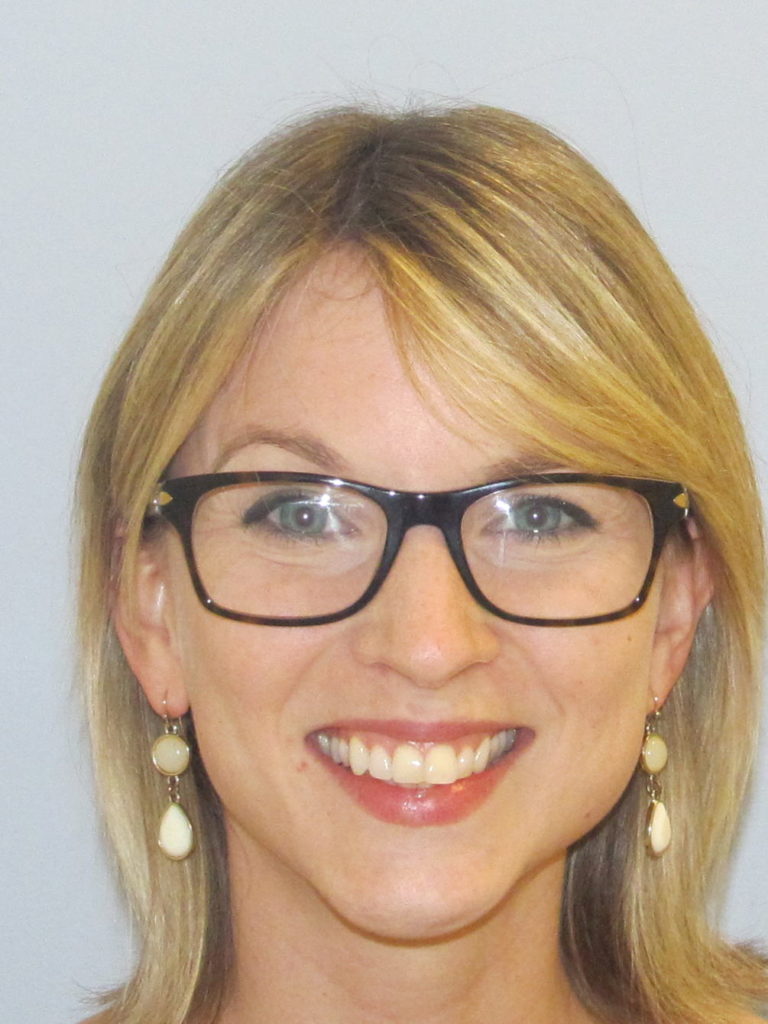
Kathleen Huth, MD, MMSc, FRCPC
Associate Director, Teaching Certificate Program
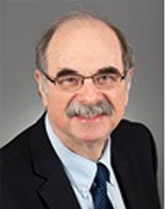
Alan Leichtner, MD, MSHPEd
Chief Education Officer and Director of the Department of Education
Teaching Certificate Program Core Session Schedule
(See the BCH Academy seminar schedule here to sign up for the elective Academy professional development seminars — Reflections are not required)
Disclosure Policy
Boston Children’s Hospital adheres to all ACCME Essential Areas, Standards, and Policies. It is Boston Children’s policy that those who have influenced the content of a CME activity (e.g. planners, faculty, authors, reviewers and others) disclose all relevant financial relationships with commercial entities so that Boston Children’s may identify and resolve any conflicts of interest prior to the activity. These disclosures will be provided in the activity materials along with disclosure of any commercial support received for the activity. Additionally, faculty members have been instructed to disclose any limitations of data and unlabeled or investigational uses of products during their presentations.
The following planners, speakers, and content reviewers, on behalf of themselves and their spouse or partner, have reported no relevant financial relationships with any entity producing, marketing, reselling, or distributing health care goods or services consumed by, or used on patients.
The following course faculty have reported no disclosures:
Lori Newman, MEd (Director, Teaching Certificate Program)
Kathleen Huth, MD, MMsc-Medical Education, FRCPC (Associate Director, Teaching Certificate Program)
Alan Leichtner, MD, MSHPEd (Chief Education Officer, Executive Director, Department of Education)
Emily Crossen, MSN, RN, CPHON
Eva Gomez, MSN, RN, NPD-BC, CPN
Beth Harper, MD
Joshua Nagler, MD
Shelly Pignataro, MSN, RN, NPD-BC
Ariel Winn, MD
Select a group link to see fellow learners from your cohort. We encourage you to create or update your profile by adding a photo, your degree and department, and telling us about your interests. To edit your profile, select ‘My Profile’ at the top/right of the page, then select the ‘Profile’ tab.
2023-2025 Cohort
Ethan Anglemyer
Sarah Cavallaro
Sarah Fleet
Kellie Fokin
Jennifer Fox
Michael Gale
Erin Gordon
Caitlyn Johnson
Agnes Kielian
Erin Manzi
Tommy Martin
Caroline Morin
Reuth Nir
Wes Northam
Jill O’Hara
Katherine Penny
Theresa Quinn
Sara Rosenbaum
Jennifer Ross
Katherine Ulukaya
2022-2024 Cohort
Alicia Casey
Michael Ferguson
Shannon Fitzgerald
Elizabeth Gulla
Elizabeth Holleran
Alyssa Horn
David Kane
Annie Sullivan
Katherine Sweeney
If after review the contents below you still have questions or need help, please contact:
medicaleducation@childrens.harvard.edu
Once you are logged in, there are two ways to access this course: You can review any submissions you’ve made by selecting the arrow next to the BCH Teaching Certificate Program title in the course list under your profile. From the list of completed activities, select the clipboard icon under the statistics column. If you are logged in, you can edit your profile at any time. Select My Profile in the upper right corner of any page, the select “Edit” under the “Profile” tab.How do I Access this Course?
How do I Navigate this Course?

How do I Review My Activity Submissions?
How do I Edit My Profile
Michael J. Bresnan Child Neurology Course 2020
Medical Staff Organization Online Modules
You must be registered for this website and logged in to access the modules. As an MSO member you should have been pre-registered and enrolled. Select ‘Start’ above to log in, or ‘Login’ at the top of the page. Once logged in, select the ‘My Profile’ at the top of the page, then the ‘Courses’ tab. If you are having difficulty with access, please contact: cmedepartment@childrens.harvard.edu.
Welcome to the Medical Staff Organization (MSO) online continuing education modules. These courses have been specifically designed for the MSO for the Massachusetts Board of Registration in Medicine CE and Risk Management requirements for license renewal. Content development is led by the President of the MSO and leadership team along with the Continuing Education (CE) Department. Modules will be presented by highly skilled practitioners, content will range from end of life care to COVID updates to legal topics. This is a virtual self-paced continuing education course, you can choose any module at any time. New content will be added on a regular basis.
NOTE: this site does not support single sign-on with your BCH network credentials, unique log-in is required. If you have successfully logged in to the site and do not see the modules listed below, please contact: cmedepartment@childrens.harvard.edu.
You must be logged in to this site to be able to access the modules. As an MSO member you been pre-registered for the site and the MSO Modules, and should have received a welcome email with instructions on completing your registration.
To log in and access the MSO Modules:
1. Select ‘Login’ at the top of the page and log in to the site.
2. If you you need to create a password or have forgotten your password, click on “Lost your password?” to receive an “reset password” link via email.
3. Once logged in, select ‘My Profile’ at the top of the page, and then select the ‘Modules’ tab. You should see a link to the MSO Modules.
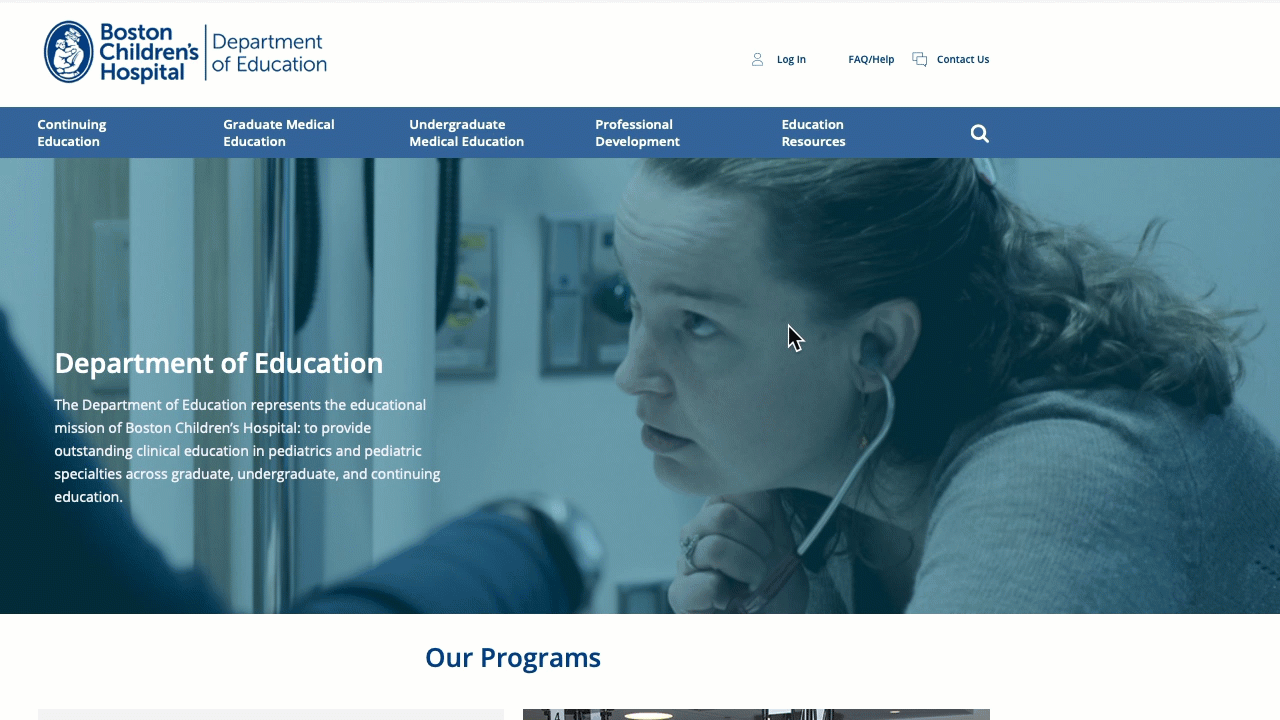
In support of improving patient care, Boston Children’s Hospital is jointly accredited by the Accreditation Council for Continuing Medical Education (ACCME), the Accreditation Council for Pharmacy Education (ACPE), and the American Nurses Credentialing Center (ANCC), to provide continuing education for the healthcare team.

You may access and print certificates earned here any time. See the help tab for more on viewing/printing certificates. All credits will also be recorded on your CloudCME transcripts, which are available for download 24/7 in the “Transcripts” area of the portal – credits earned do not disappear from transcripts. https://bostonchildrens.cloud-cme.com/cme/?P=1001
Support
You must be registered for this website to access modules. As an MSO member you should have been pre-registered. To log in and return to the MSO modules, select ‘Login’ at the top of the page, then select the ‘Modules’ tab under ‘My Profile’. If you do not see the MSO Modules listed below, please contact:
cmedepartment@childrens.harvard.edu.
How to complete attestation for CME credit
Select the link under “Activities” to access the attestation question. Select the attestation option, and then click “Finish Activity” to record your attestation and display the “Print Certificate” button. Note that you do not have to print your certificate immediately, you can do so at a later date.
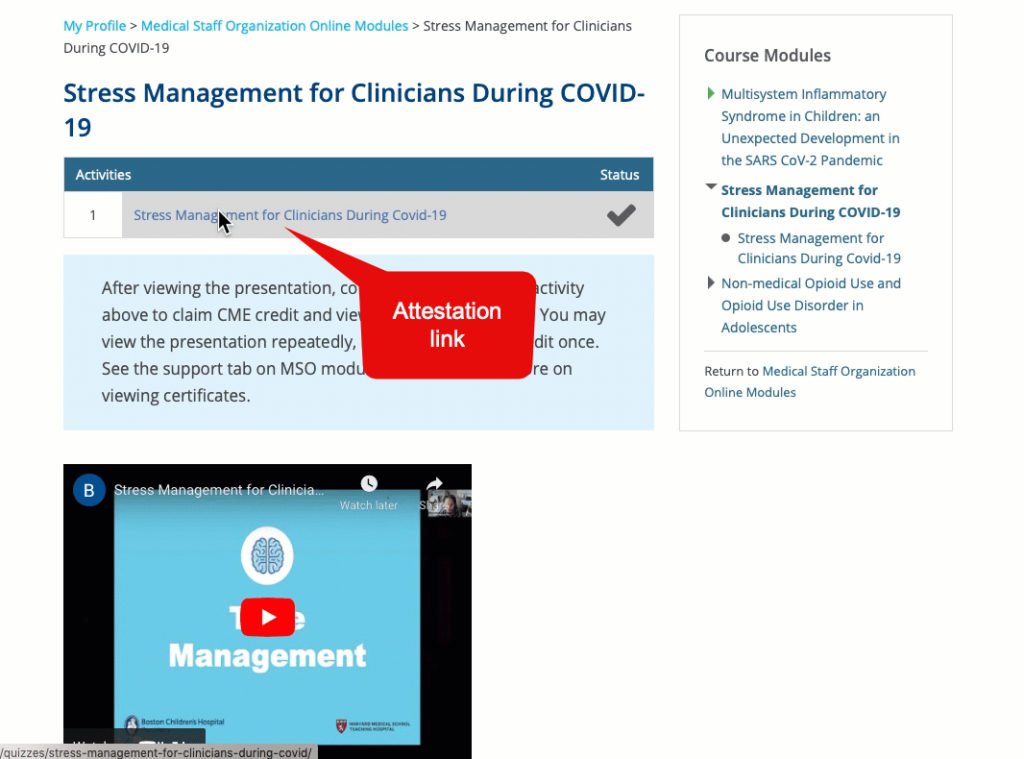
How to view/print certificates from your profile
To view/print a module certificate at any time after you have completed an activity, select ‘Modules’ under ‘Profile’ above, then select the arrow next to the module title.
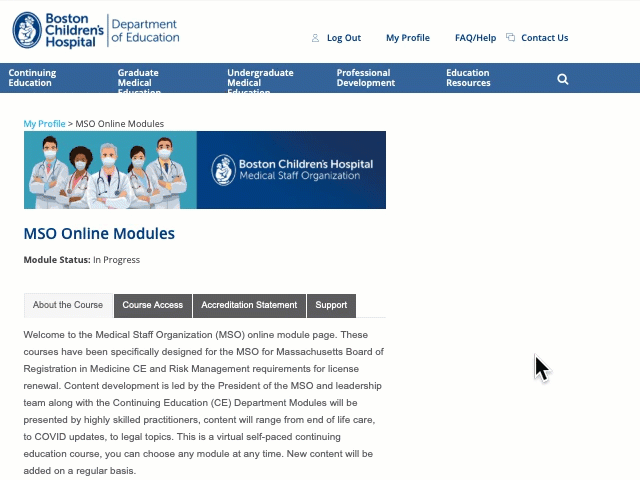
All credits will also be recorded on your CloudCME transcripts, which are available for download 24/7 in the “Transcripts” area of the portal – credits earned do not disappear from transcripts. https://bostonchildrens.cloud-cme.com/cme/?P=1001
Learning Style Assessment
You should receive an outside email inviting you to complete the Kolb Learning Style Assessment. Please complete this prior to the first in-person session.
To indicate you have completed the Kolb Assessment, select “Finish Activity” below.
Pediatric Pulmonology Fellowship Orientation
Welcome to our fellowship! We are so excited that you are here. Our goal is to make your transition to Boston Children’s a smooth one. This online module is core component of your orientation. Please complete the sections below, and feel free to download any of the documents to use as a reference throughout your fellowship. And please don’t hesitate to reach out to us with any questions, concerns, or suggestions throughout your time at Children’s. We are looking forward to working and learning with you!
Debra and Alicia
Schedule
Policies and Procedures
Self Study
PFT Workshop
Interpretative strategies for lung function tests
PFT Interpretation Guidelines 2017
Top 5 Consult Questions
Interdisciplinary Care of Children with Severe Bronchopulmonary Dysplasia
Pediatric Obstructive Sleep Apnea Syndrome
Pseudo-asthma-When Cough, Wheezing, and Dyspnea Are Not Asthma
Pulmonary complications of haematopoietic cell transplantation in children
Quick Reference
[course_content]
Leadership Seminar for Surgical Fellows
Starting in August 2021, there will be a year-long leadership seminar for you as surgical subspecialty fellows at Boston Children’s Hospital. The reasons for the leadership seminar are: (1) the present inadequacy in team communication and leadership education and training surgeons receive early in their career and; (2) the high risk surgeons and their patients face if they and their teams perform poorly in the operating room due to non-technical elements of care delivery.
The seminar will run the full year of your surgical subspecialty fellowship in coordination with your technical training and surgical content education. The design of the seminar is for interweaving of leadership skill acquisition and practice with your surgical training before you become independent faculty and practitioners responsible for your own operating room team performance. Reading, reflection, visual observation, role modeling, simulation, and real case performance will all be used to acquire non-technical skill and execute on surgical coordinated team based care.
The orthopaedic surgery, otolaryngology, plastic surgery and urology surgical fellows will all meet together monthly with selected faculty. The seminar will be divided into modules with quarterly assessments of competency progression. There will be repeated reflection, reading, and observational assignments to motivate leadership development. Mentoring will be an essential part of the program. There will be cross subspecialty mentoring to maintain confidentiality.
Leadership Seminar Overview
Preconception or Misconception
- Leaders are Born
- Leadership is Intuitive
Building Expertise
- Reading, observing, discussing, reflecting
- Reading on leadership and management
- Observations, reflections cumulative throughout the year
Active:
- Participating in surgery with progressive responsibility and structured feedback
- Simulation Performance with feedback
- REAL performance (independent surgery) with feedback
- Case Scenarios
The educational plan is for learning to be transformative in affect, attitude and behavioral domains. Passive and active exercises are designed to dispel preconceptions and misconceptions on leaders and leadership. Building knowledge first, and then progressing to building expertise. Therefore, as the seminar moves through modules, role playing, audio-video review and environmental observations both in simulation and in real working environment will be used.
The lack of protected time could be a limiting factor to your reading and to completion of complex problem based or team based learnings. However, the seminar is coincidental with your clinical fellowship. The reading will be limited but worthwhile. We hope the influence of engaged, caring mentors, the commitment of your chiefs to this program, and the reality of your looming future beyond fellowship will be motivation enough. The reality of life beyond the walls of your fellowship will heighten your engagement and learning. The seminar provides you the opportunity for peer review and real time mentor feedback confidentially in domains not always provided.
The learning objectives of the course are as follows:
- achieve sustainable advances in your leadership and communication skills.
- understand and recognize how attitudes, behaviors and varying skill levels (you and others) contribute to operating room efficiency, safety and quality.
- recognize and understand your essential role as a leader of the overall operating room performance.
- understand how this year long leadership seminar contributes to your lifelong career goal of engagement in patient safety and quality improvement.
Your formative assessments will be monthly in seminar and the summative assessments will be quarterly. Similarly, you will assess the program module by module and summatively quarterly and at the end of the seminar. You all will help us make this better and better as we go on to next year’s seminar and beyond.
Finally, you will become “teammates” in many ways, a very important aspect of leadership.
Monthly Formative Assessments
We will limit reading to a few articles and/or videos per week. The in seminar discussion will be robust, case based.
Leadership Building Blocks Quarterly Assessments
I. August – September 2021
- Individual Leader’s Understanding of Themselves
- Style, strengths, and vulnerabilities
- PRISM Profile
- Kolb Learning Assessment
- Case Scenarios
II. November 2021
- Observational videos STRATA BWH/ACS, SIMPeds Ortho BCH
- NOTSS, ANTS, SPLINTS scoring
- Facilitated discussion group review
III. February 2022
- Simulation Session Operative Case led by Fellow with video review
- Case Scenarios
IV. April-May 2022
- Real Event Analysis and Learning (REAL) of operative case in OR led by Fellow
- Case Scenarios
Course Director: Peter Waters, MD, MMSc
Course Consultants: Chris Newell
Course Coordinator: Sarah Sarnie
Surgical Subspecialty Departmental Educators
| Orthopaedic Surgery & Sports Medicine: | Otolaryngology | SimPEDS | Plastic Surgery | Urology |
| Peter Waters, MD, MMSc | Michael Cunningham, MD, FACS | Peter Weinstock MD, PhD | Ingrid Ganske, MD | Carlos, Estrada, MD, MBA |
| Dennis Kramer, MD | Gi Lee, MD, EdM | Mark Green, DDS, MD | Caleb Nelson, MD, MPH | |
| Benton Heyworth, MD | ||||
| Benjamin Shore MD, MPH, FRCSC |
In order to facilitate activity beyond in-person sessions throughout the seminar, we have set each team up with an online group space. Group spaces enable team members to upload/download document to share among group members, conduct online discussion, and plan events. Select a team to visit its group page:
| Ben Shore Mark Green Caled Nelson | Dennis Kramer Michael Cunningham | Ben Heyworth Gi Lee | Ingrid Ganske Carlos Estrada |
|---|---|---|---|
| Michelle Mo Magdalena Tarchala Lilun Li Ted Lee | Blake Montgomery John Roaten Brian Manzi | Elizabeth Scott Emmanouil Grigoriou Joseph Peterson | Kirsten Ross Melissa Kanack Hatim Thaker |
Leadership Seminar for Surgical Residents
Leadership Seminar Overview
Preconception or Misconception
- Leaders are Born
- Leadership is Intuitive
Building Expertise
- Reading, observing, discussing, reflecting
- Reading on leadership and management
- Observations, reflections cumulative throughout the year
Active:
- Participating in surgery with progressive responsibility and structured feedback
- Simulation Performance with feedback
- Case Scenarios
The educational plan is for learning to be transformative in affect, attitude and behavioral domains. Passive and active exercises are designed to dispel preconceptions and misconceptions on leaders and leadership. Building knowledge first, and then progressing to building expertise. Therefore, as the seminar moves through modules, role playing, audio-video review and environmental observations both in simulation and in real working environment will be used.
The lack of protected time could be a limiting factor to your reading and to completion of complex problem based or team based learnings. However, the seminar is coincidental with your clinical residency. The reading will be limited but worthwhile. We hope the influence of engaged, caring mentors, the commitment of your chiefs to this program, and the reality of your looming future beyond residency will be motivation enough. The reality of life beyond the walls of your residency will heighten your engagement and learning. The seminar provides you the opportunity for peer review and real time mentor feedback confidentially in domains not always provided.
The learning objectives of the course are:
- achieve sustainable advances in your leadership and communication skills.
- understand and recognize how attitudes, behaviors and varying skill levels (you and others) contribute to operating room efficiency, safety and quality.
- recognize and understand your essential role as a leader of the overall operating room performance.
- understand how this 6 month leadership seminar contributes to your lifelong career goal of engagement in patient safety and quality improvement.
Your formative assessments will be in seminar and through summative assessments. Similarly, you will assess the program module by module and summatively at the end of the seminar. You all will help us make this better and better as we go on to next year’s seminar and beyond.
Finally, you will become “teammates” in many ways, a very important aspect of leadership.
Formative Assessments
We will limit reading to a few articles and/or videos per week. The in seminar discussion will be robust, case based.
I. Individual Leader’s Understanding of Themselves, Style, strengths, and Vulnerabilities
- PRISM Profile
- Kolb Learning Assessment
- Case Scenarios
II. Observational videos STRATA BWH/ACS, SIMPeds Ortho BCH
- NOTSS, ANTS, SPLINTS scoring
- Facilitated discussion group review
III.
- Real Event Analysis and Learning (REAL) of operative case in OR.
- Case Scenarios
Course Director: Peter Waters, MD, MMSc

